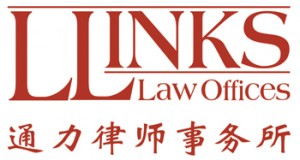In our previous article, with respect to outbound acquisitions, the authors explained the impact of relevant approval procedures of listed companies on the effective timing of transaction agreements. In this article, the authors discuss more common issues arising under other customary transaction practices from the perspective of procedures of listed companies.

Partner
Llinks Law Offices
Closing price adjustment mechanism
As a customary practice, in an outbound acquisition the transaction parties will usually agree on a closing price adjustment mechanism, which specifically means: (1) at signing, the parties will only agree to a basic valuation, which is calculated based on specific financial indicators (usually cash, debt and working capital); (2) at closing, the parties will determine an estimated valuation based on the estimate of the said financial indicators on the closing date, and the buyer will pay an estimated price based on such valuation; and (3) after the closing, the buyer will conduct an audit to confirm the actual numbers for the said financial indicators, and accordingly the final price. If there is any difference between the final price and the estimated price, the seller will make refunds on any excess, or the buyer will make further payment with respect to any deficit.

Partner
Llinks Law Offices
According to the above-mentioned mechanism, the basic valuation agreed at the time of signing may be adjusted at, or after, the closing. From the perspective of relevant procedures of listed companies, such mechanism may be subject to the following restrictions.
If the transaction constitutes a material asset restructuring, according to the requirements of laws, regulations and securities rules, the general shareholders’ meeting will review the pricing method (pricing basis) of the transaction, and the attribution of profits and losses of the target from the financial reference date to the closing date. In this case, the pricing method of the proposed target in the material asset restructuring is often based on the valuation on the financial reference date, and the profits and losses arrangement during the transition period will also be agreed.
The specific scheme is that the listed company will engage an auditor qualified in securities practices, after the closing, to conduct an audit on the profits and losses of the target between the valuation reference date and the closing date. In addition, from the perspective of protecting listed companies and their investors, a common arrangement during the transition period is that the profits in such period will belong to the listed company, while the losses incurred will be compensated by the seller in cash.
Therefore, the purchase price in a material asset restructuring transaction must be based on the valuation on the financial reference date, and can only be adjusted based on the profits or losses during the transition period. In this case, the closing price adjustment mechanism may not be applicable.
If the transaction is not a material asset restructuring, and the parties are not subject to the above-mentioned restrictions, the closing price adjustment mechanism will be applicable. However, it should be noted that, according to the requirements on fairness of the transaction and protection over the interests of listed companies and the public shareholders under securities rules and internal governance rules of listed companies, a pricing basis (i.e., an asset appraisal) is required when the general shareholders’ meeting and the board of directors review the price of the target.
Therefore, it is suggested that listed companies take the asset appraisal into account and make plans in advance when formulating the timetable of the transaction, especially the time of submission to the general shareholders’ meeting.
In addition, to meet the above-mentioned requirements, an upper limit for price adjustment is usually set in the resolution of the general shareholders’ meeting. If such limit is exceeded, the price adjustment is subject to review by the general shareholders’ meeting again.
Therefore, there are still uncertainties in price adjustment on the closing date, and after the closing, and the adjustment may not be practicable. In such a case, listed companies may consider placing limits on price adjustment in the agreement to avoid second review by the shareholders’ meeting to the best extent possible.
Letter of undertaking
In outbound acquisition transactions, the foreign parties usually place a high demand on deal certainty. Therefore, if the Chinese party is an A-share listed company and the transaction requires approval of the general shareholders’ meeting, the foreign parties will usually require the controlling shareholder and/or the actual controller to undertake in writing to support the transaction.
If the controlling shareholder and/or the actual controller accepts such an arrangement, they need to pay attention to the scope of the undertaking, which means the controlling shareholder and/or the actual controller can usually undertake that himself/herself and the person acting in concert (if any) will vote in favour of the transaction at the meeting of the board of directors and the general shareholders’ meeting; or they may further undertake to endeavour to procure the general shareholders’ meeting to approve the transaction, but should not guarantee that the transaction will be approved by the general shareholders’ meeting. Subject to the said scope, such an undertaking does not violate relevant mandatory regulations of listed companies, and therefore listed companies may negotiate such an arrangement with the counterparty in the transaction.
Laws governing transaction documents
The transaction documents in outbound acquisition transactions are usually governed by laws of foreign jurisdiction, in which case the laws of neutral places such as Hong Kong are common, or the laws of the domicile of the target may also be stipulated. However, if the transaction involves share arrangements of A-share listed companies, such as issuing shares or future repurchase of shares for events such as performance guarantee, it should be clearly specified in the transaction documents that the matters involving issuance of shares and repurchase of shares by A-share listed companies shall be conducted in accordance with relevant Chinese laws and regulations, and the regulatory requirements for listed companies.
Leo Wang and Kenneth Kong are partners at Llinks Law Offices

Llinks Law Offices
16F / 19F, ONE LUJIAZUI, 68 Yin Cheng Road Middle
Shanghai 200120, China
Tel: +86 21 3135 8666
Fax: +86 21 3135 8600
E-mail:leo.wang@llinkslaw.com




















